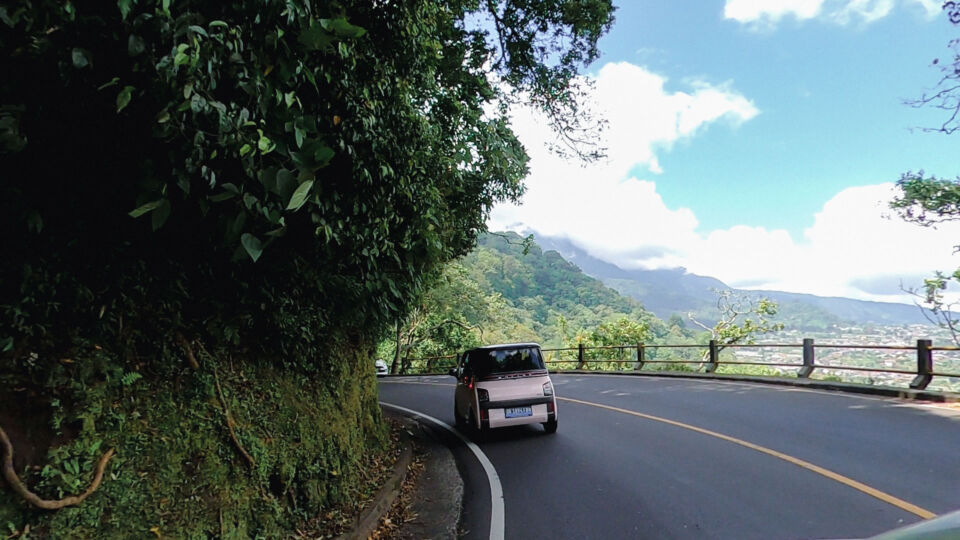There’s more to the Bali than Canggu and Ubud – escape the traffic jams and environmental woes of popular hotspots with a journey off the beaten track as the island grapples with a surge in tourism.
In July this year, at the peak of Bali’s tourist season, international arrivals to the island reached 90 percent of pre-pandemic levels, according to the Central Statistics Agency. Although welcome news for Bali’s travel sector, the province’s rapid tourism rebound has led its top transport official to predict total gridlock in Kuta by 2024 — unless a light rail system is built to reduce road users.
Meanwhile, in Ubud, Bali’s provincial government is aiming to make a dent in traffic congestion through a US$1.7 million joint initiative with the Toyota Mobility Foundation, the car manufacturer’s non-profit tackling urban transportation challenges. The partners recently launched a six-month trial of the Sustainable Mobility Advancing Real Transformation (SMART) program: a free on-demand electric vehicle shuttle service for residents and tourists, accessible via the SMART Shuttle @Ubud app (iOS/Android). If successful, it is possible the service will become permanent and replicated in other tourism centers.
For visitors to the island who are eager to avoid the padat merayap (dense, creeping) road conditions of the southern regions, and to reduce their environmental impact while supporting local communities, Bali’s central and northern districts offer myriad options for responsible travel. Here are a handful of highlights.
Spend the night in a solar power-equipped campervan on the edge of Lake Beratan
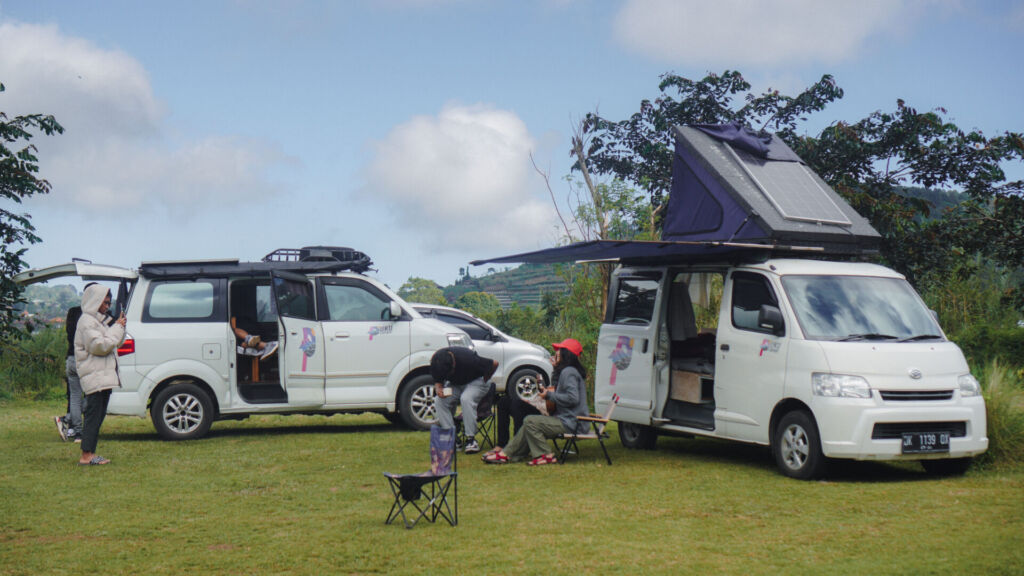
Lying between densely forested hills and the northern edge of Lake Beratan in Bedugul, Bali’s horticultural district, Cok Camp is an idyllic place to pitch a tent — or hire one and let the staff do it for you. Toilet and hot water shower facilities, a small kiosk, electricity outlets, campfire sites, and undercover areas make for hassle-free camping, which leaves more time to admire the wispy pink and orange clouds hovering low over the hills at sunset, and the pearlescent hues of the lake at dawn. For those who prefer a little extra comfort, the Humble Camper from Bali’s first campervan rental company, PukuCamper, features plush mattresses, a gas stove, cooking utensils, and 450 watts of solar power.
Sip single origin arabica from Infinity Coffee & Roastery
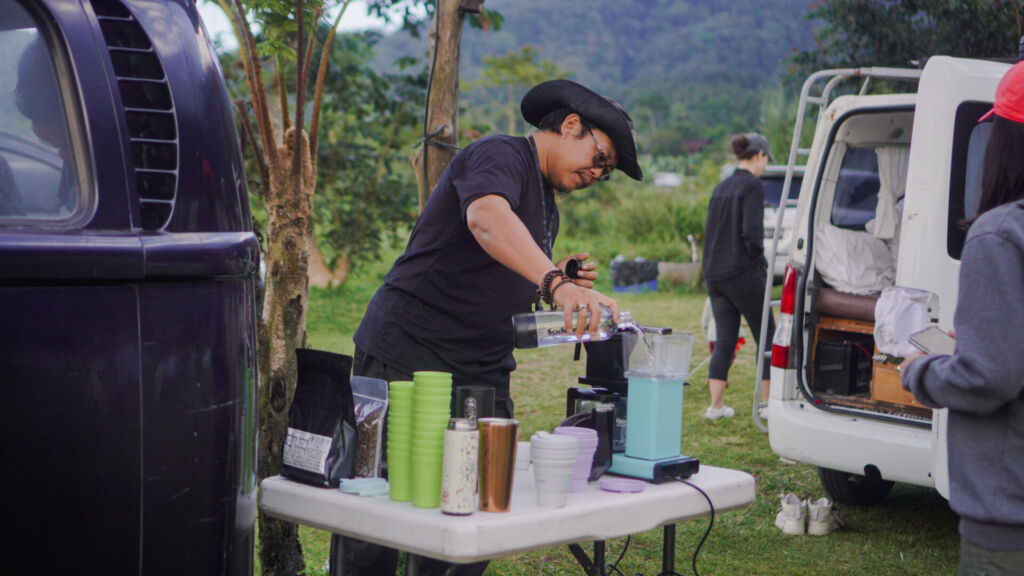
As well as in the neighboring district of Kintamani, which averages around 1,700 meters above sea level, Bedugul’s nutrient-rich earth and cooler climate provide ideal conditions for growing arabica. On Lake Beratan’s western edge, Candikuning Coffee Farm produces specialty arabica beans processed with several methods and sold under the Infinity Coffee & Roastery brand, founded by Balinese coffee expert Gung Bagus in 2016. The resulting cups are available just a few minutes from the farm at The Joglo Beratan, a budget guesthouse and café, as well as at the brand’s flagship stall at Matahari Terbit Beach and Warung Kecil Infinity on the Bypass.
Try the native dishes of North Bali at Pengalaman Rasa
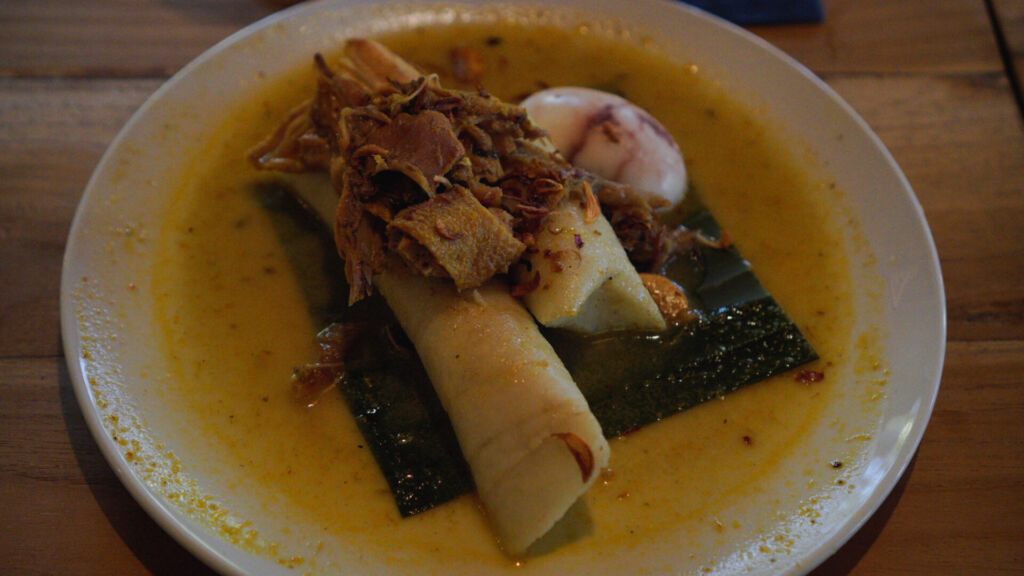
For culturally curious foodies, a visit to Pengalaman Rasa kitchen and culinary lab in Bengkala village, Buleleng regency is an essential experience. In a rustic venue called Rumah Intaran, which incorporates traditional architecture principles and natural materials, head chef and Bengkala local Ayu Gayatri Kresna creates native dishes and drinks with fine dining flair, such as blayag, a steamed rice cake and spiced chicken dish unique to Buleleng, and refreshing rosella iced tea. While she’s busy in the kitchen, her architect husband Gede Kresna, who built Rumah Intaran, regales diners with vivid descriptions of the time-honored techniques used to create the flavorsome fare, as well as the local wisdom behind products such as palm sugar, as well as the traditional Balinese liquor arak and tuak.
Visit groundbreaking community education center Amisekawa
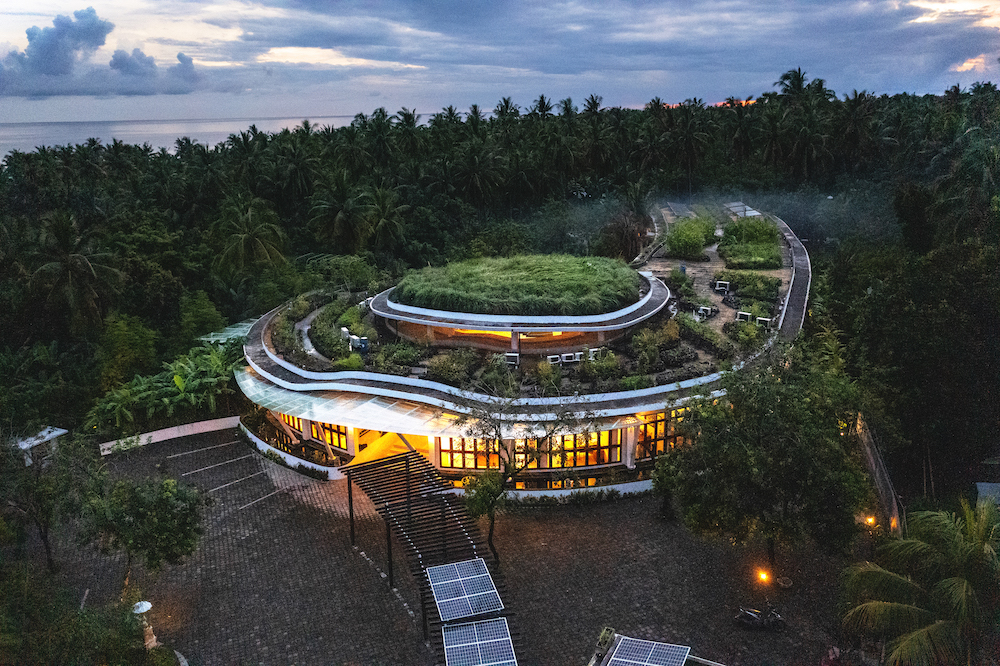
Around 25 kilometers east of Pengalaman Rasa in the small coastal village of Les is Amisewaka Desa Les Community Center. Established in mid-2022, Amisewaka delivers vocational and life skills training to disadvantaged young people, with the aim of boosting their confidence and empowering them to find jobs in leading hotels and restaurants — one student from the center’s first group of graduates is now permanent staff at famed Bali restaurant Locavore. Amisewaka’s roof is covered in edible permaculture gardens and solar panels set against a backdrop of coconut palms. Students learn how to use the organic harvests to create healthy dishes and refreshments, while the excess produce and other goodies are sold at a weekly market held every Thursday from 1pm–4pm. For genuine social impact, consider making a donation or sponsoring a student.
Explore Bali in an electric vehicle
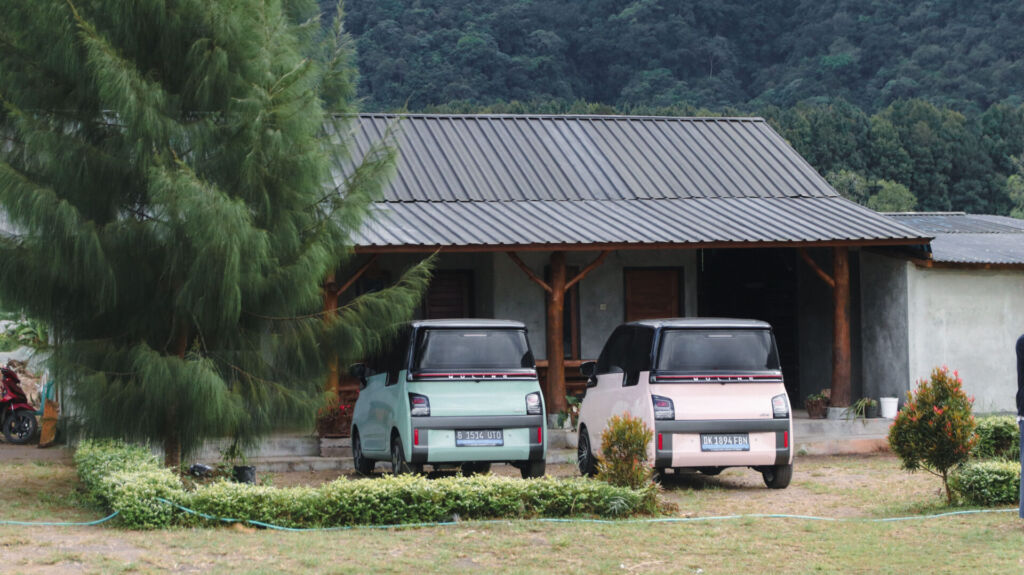
Zipping around quietly in a range of pastel shades, the cute little Wuling Air EV is popping up more and more on Bali’s streets. With a bit of planning to confirm charging point locations (and patience as the EV battery gets a boost), it’s possible to explore the island without burning fossil fuels. Several car rental companies have added the Wuling Air EV to their fleets, including Baliqu and Love Rental Bali, while Skute, Mute Garage Bali, and Melali specialize in electric scooters.
Promoting low carbon transport options and encouraging tourists to rethink the hotels they choose and waste they produce is the core mission of KemBALI Becik, a group of NGOs and local businesses that banded together at the beginning of the island’s post-pandemic recovery. Through its website, social media campaigns and sustainable travel guide, the Green Pages, the collective highlights businesses and organizations adopting clean energy and offering environmentally friendly products. Following in the footsteps of pledges such as Travelers Against Plastic, the collective is also inviting tourists to sign the KemBALI Becik Travelers’ Pledge.
With international arrivals expected to exceed the provincial government’s target of 4.5 million for 2023, it is more important than ever for travelers to consider how their time in Bali impacts its environment and local communities. Exploring beyond the southern regions and supporting locally owned and operated businesses is a great way to start.
